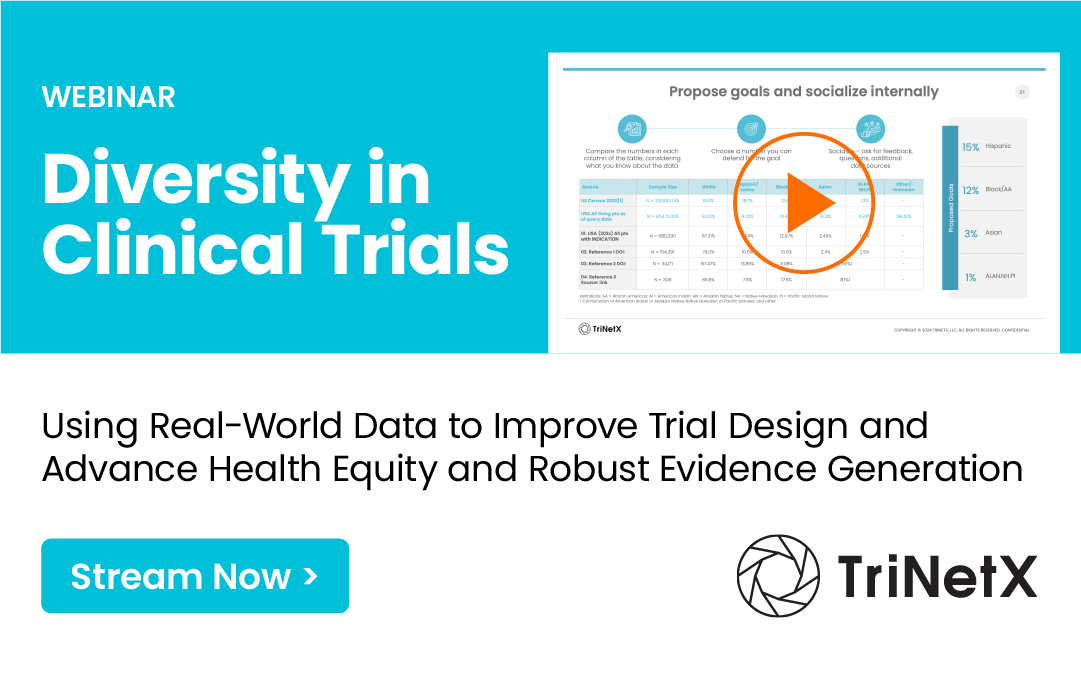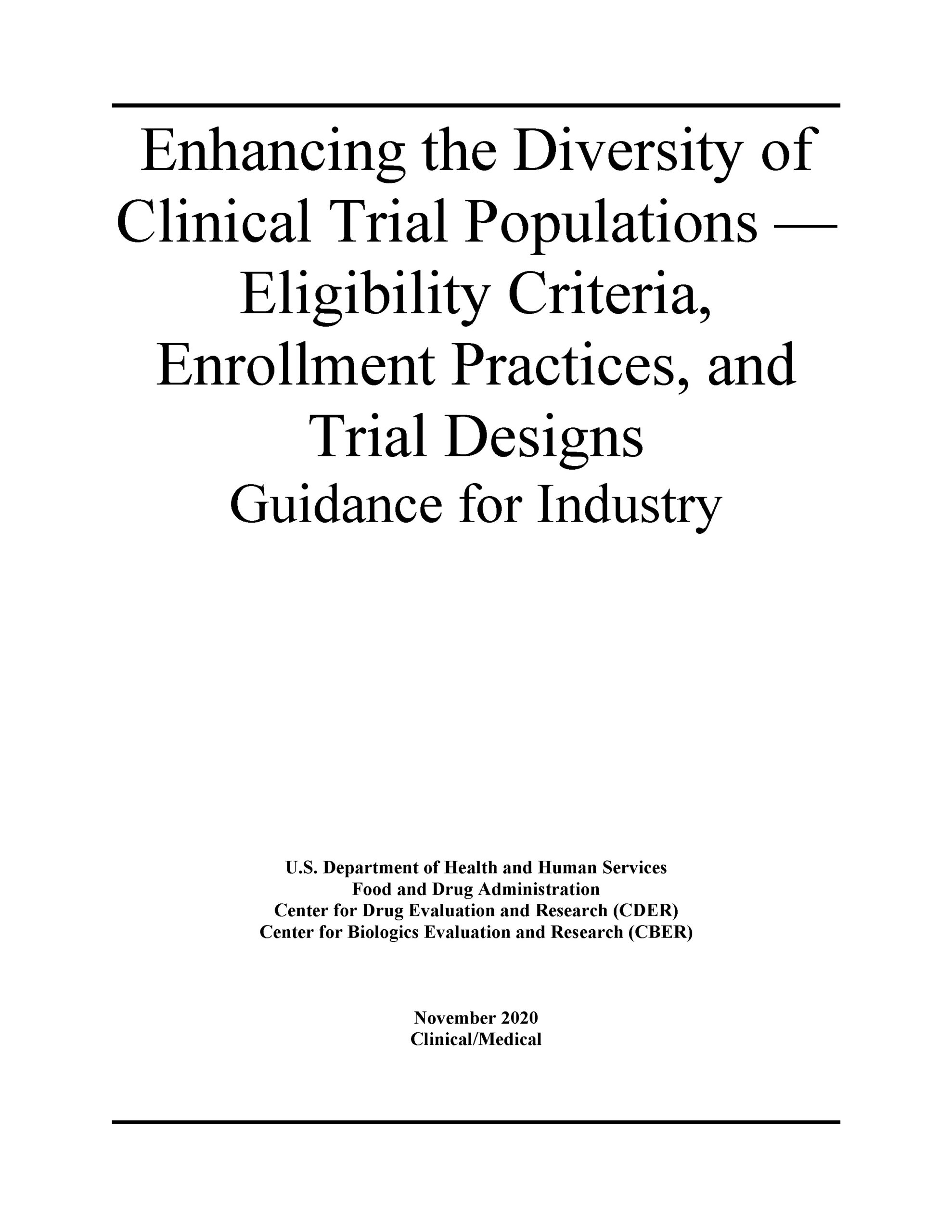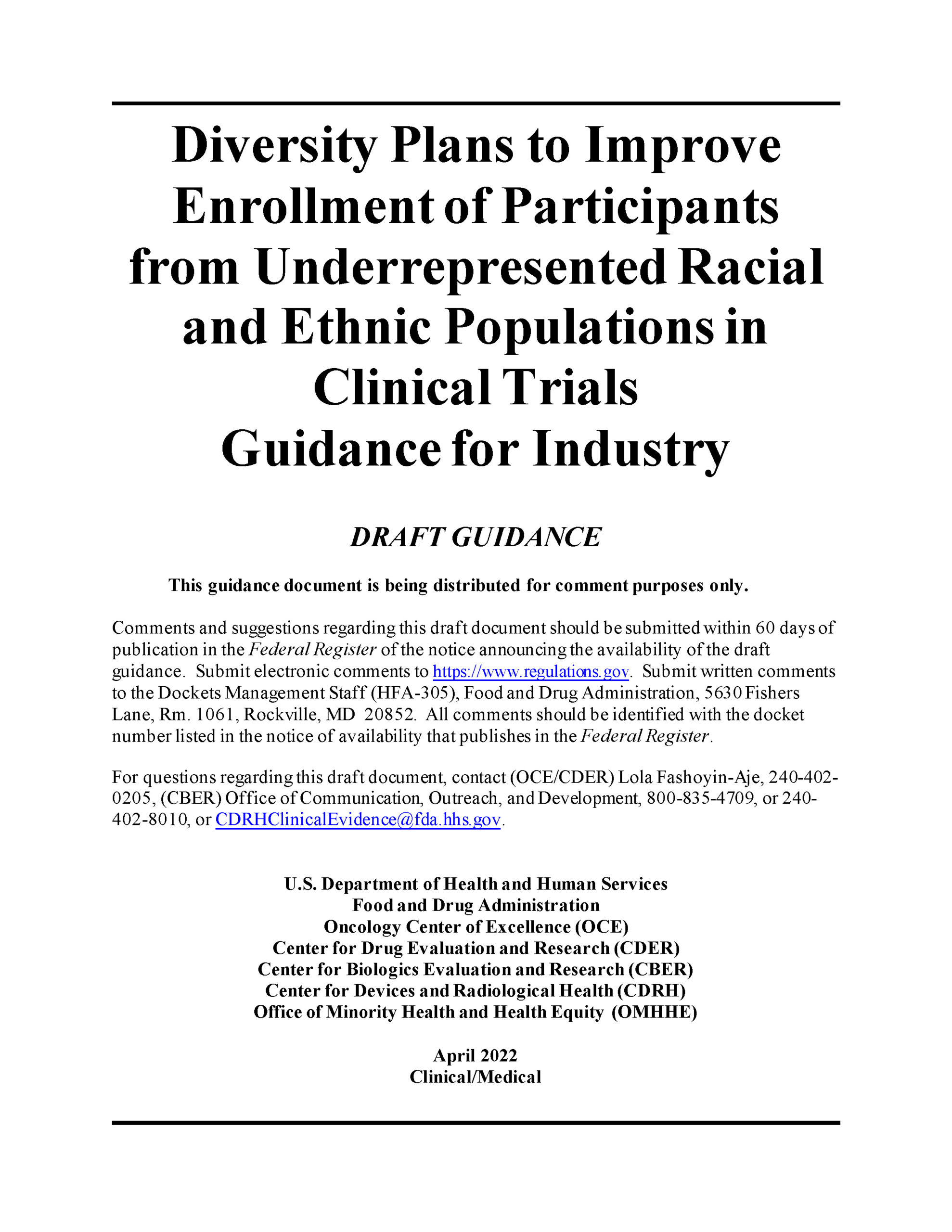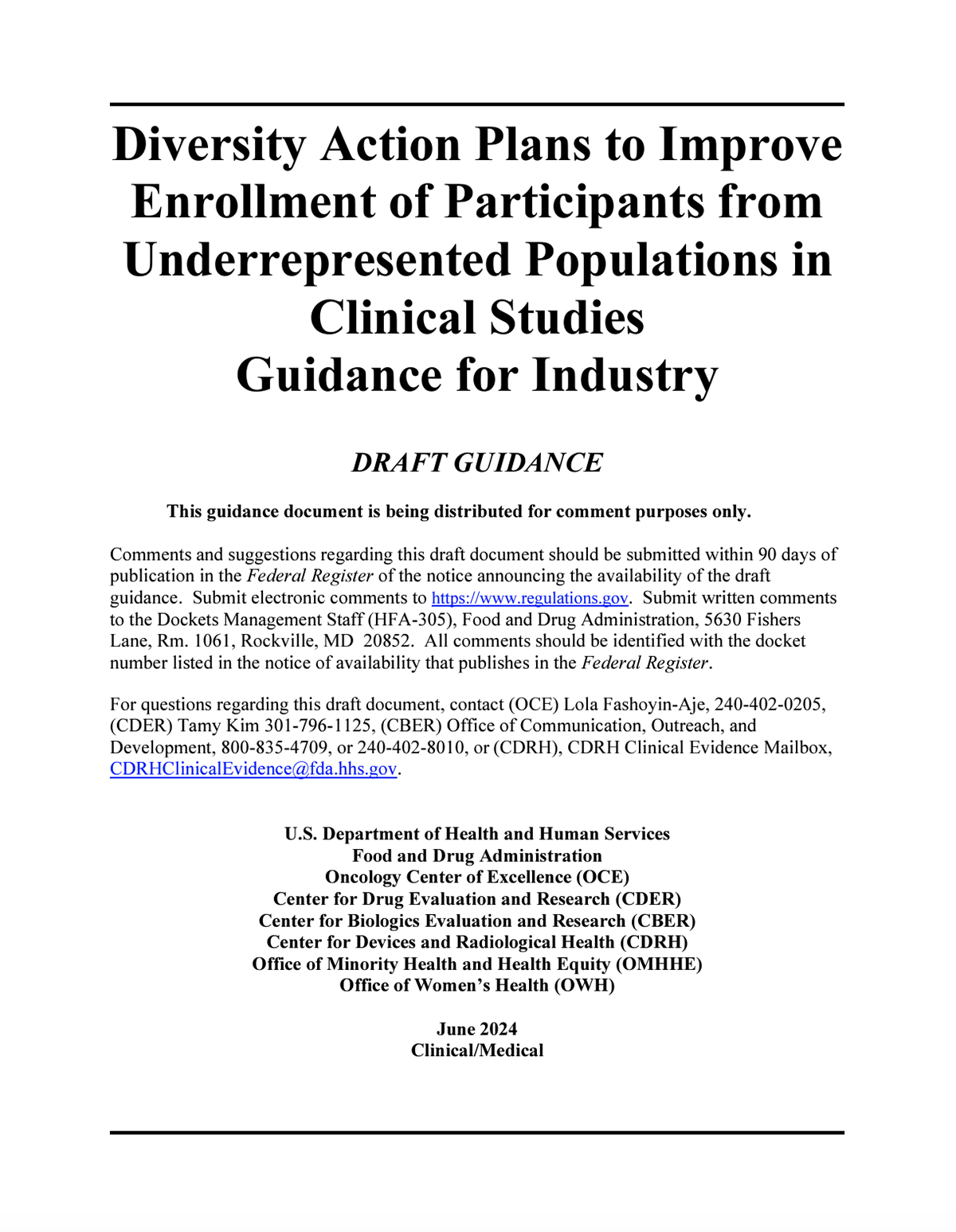Advancing Diversity in Clinical Trials
The benefits of research belong to all.
Or so our ideals tell us. Reality tells a different story. Systemic imbalances exclude too many people from trial opportunities on the basis of race, ethnicity, economic status, geography, or other social determinant. The exclusion may not be deliberate, but its effects are dire.
What’s the solution? More complex than any single changemaker can achieve. Drug developers, researchers, clinicians, policymakers, educators, and patient advocates all share the responsibility to achieve our ideals. TriNetX has a role to play. As a research leader, so do you.
Connect with one of our real-world data experts to discuss how TriNetX can guide your DEI efforts into ground-breaking territories.
The Need for Change
Connecting the Dots
TriNetX Diversity Solutions
Taking Action
The Need for Change
Asian-Americans represent 5.9% of the U.S. population and a mean of 1.6% of all participants in pivotal trials between 2015 and 2019.
Lolic M, Araojo R, Okeke M, Woodcock J. Racial and Ethnic Representation in US Clinical Trials of New Drugs and Biologics, 2015-2019. JAMA. 2021;326(21):2201–2203.
Black Americans make up roughly 12% of the U.S. population and a disproportionate number of new cancer cases. Yet none of the 11 novel drug approvals for cancer in 2022 were based on study cohorts that enrolled more than 8% Black participants.
Center for Drug Evaluation and Research. Drug Trials Snapshots Summary Report 2022.
Latinos represent 17% of the U.S. population and yet only 6-7% of participants in clinical trials.
S. Presch. Health for All of Us: The Importance of Latino Participation in clinical trials and research. UNIDOS US Blog. 6 March 2018.
Featured Webinar
Diversity in Clinical Trials: Using Real-World Data to Improve Trial Design and Advance Health Equity and Robust Evidence Generation
Featuring guest speakers from Sanofi and Clinical Trials Transformation Initiative, this webinar concluded with a dynamic 15-minute panel discussion moderated by Dr. Jeffery Brown, allowing attendees to engage with the speakers and delve deeper into the presented topics of: real-time access to diverse patient populations, advanced analytics and insights, and secure and compliant data sharing. Don’t miss this opportunity to gain valuable insights from industry experts and contribute to the ongoing dialogue on improving diversity in clinical trials.
Connecting the Dots
TriNetX Diversity Solutions
From TriNetX LIVE™, real-world datasets, and expert services, we’re focusing our strengths on three areas: representative protocol design, diverse patient recruitment insights, and advanced analysis.
The barriers to diversity, equity, and inclusion (DEI) in clinical trials are multifaceted. At TriNetX, we are focused on breaking down barriers across all our solutions.
Building Inclusive and Representative Protocol Designs
Sound experimental design necessitates representative samples and extends benefits widely. Protocols attuned to diverse patient backgrounds and RWD-informed approaches ensure generalizable results and inclusive trial participation.
Accelerating Diverse Patient Recruitment
By making criteria “real-world ready,” our clinical analysts and study operations leaders connect you to these institutions globally, enabling faster “First Patient In” on a diverse cohort and delivering hope sooner.
Uncovering Critical Differences in Patient Care through Advanced Data Analysis
We use advanced analytics and top epidemiology experts to deeply interrogate real-world data to reveal critical differences in access, treatment, and outcomes.
Turning inclusion criteria into inclusive criteria
Sound experimental design requires that our samples represent the populations we want to understand. Meanwhile, a commitment to patients demands that we extend benefits, if they are discovered, as widely as possible.
Meeting both mandates starts with the right protocol. Study eligibility attuned to the health and experience of today’s patients, representing all backgrounds, let us design trials with more generalizable results. This RWD-informed approach also extends the benefits of participation to those disproportionately excluded by criteria that paint too broad a brush.
TriNetX Solutions
Leveraging AI to enhance diversity in clinical trials
In clinical trials, achieving diverse and representative patient populations remains a significant challenge, particularly in rare disease protocols and among populations prone to care transitions. Despite the advancements AI offers, such as improving patient recruitment and site identification, enrollment shortfalls continue to plague the industry, with nearly 80% of studies falling short of their recruitment goals.
Could AI be the key to solving this problem?
Watch our webinar to explore how AI is transforming clinical trial diversity. Delve into the potential of AI to tackle these issues and drive success in patient recruitment and site selection.
TriNetX Webinar: Optimize AI’s Role in Supporting Clinical Research
Going deep into disparities
Natural course of disease. Disease burden. Standard of care. The forms these take are as various as patients themselves. Trends at the population level can quickly fall apart under analysis by cohort, whether defined clinically or demographically. Our rich de-identified data—inclusive of race, ethnicity, and (for millions of US patients) types of insurance coverage—enable researchers to pierce the surface of the “patient profile” to reveal the critical differences in access, treatment, and outcome.
We don’t stop at gathering the data. We interrogate it, with best-in-class analytic tools and the brightest minds in epidemiology and evidence generation.
Research Spotlight:
, , , . Race, ethnicity, and utilization of outpatient rehabilitation for treatment of post COVID-19 condition. PM&R. 2022; 14(11): 1315–1324. doi:10.1002/pmrj.12869
Research Spotlight:
Urdang, Zachary D., et al. “Federated Electronic Health Record Database via a Public-Private Partnership to Enhance Health Care Equity by Disparity Discovery and Equitable Clinical Trial Recruitment.” Journal of Health Care for the Poor and Underserved, vol. 33 no. 5, 2022, p. 124-137. Project MUSE, https://doi.org/10.1353/hpu.2022.0162.
Taking Action
As a research leader, you can bring the next chapter of history closer to our ideals—not with a gesture but a commitment to best practices. You can understand the social dimension of disease, scrutinize every protocol’s criteria, and connect with new care institutions and investigators.
But effective action starts with education. Here you will find the latest FDA guidance on diversity in trial enrollment.






